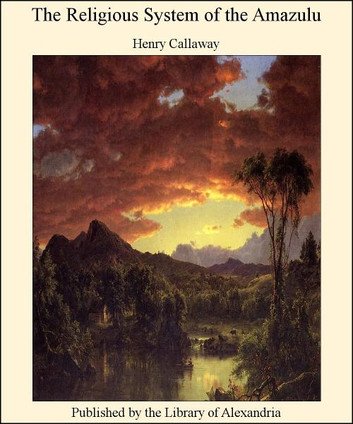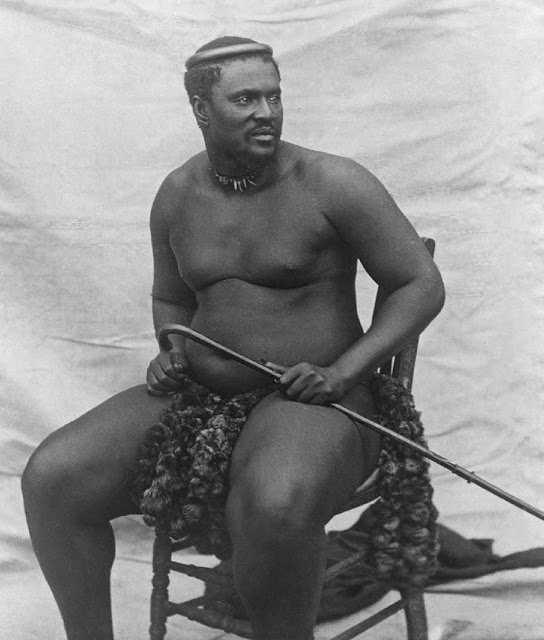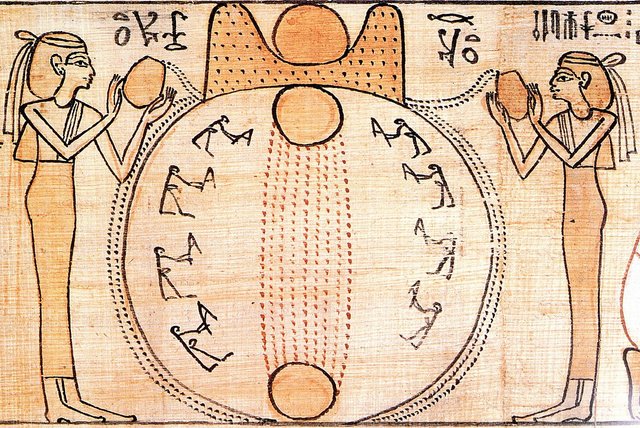As the backbone of this post, I did frequent a book written by a certain Pastor Henry Callaway (1817-90), author of The Religious System of the Amazulu (1868). It serves the majority source in finding clear traces to the Books of Moses and many others, unmistakably reflecting Old Testament traditions and ways of thought imbedded in Zulu culture.

Now this book, which does contain many strange renderings and thoughts even, on the Amazulu (amaXhosa) belief system. Callaway draws comparisons to Hindu mythology and the likes, but the most interesting is that the book do supply subtile hints to Israels long lost and forgotten past. I do not know if Callaway intended for this comparison to be made, although there is plenty of ample evidence for what this blog and many other people in South Africa have been saying for years and years. That the Land of Promise was no other place than on top of the world (well down these days) made up of the ancient integral tribes, The Tribe of Judah, Benjamin og Levite, to mention a few. And what continent has more tribes than any other EVER recorded in the history of man? Thats right, and it aint in the middle east folks. It just aint. Africa has (on record) estimations of 3000 tribes... Now let that sink in, and try to imagine and think back to the time when Moses climbed mount Sinai, Abraham walked from Ur to a far removed land, when Manwele (The Messiah) went on a walkabout in the Judean wasteland in southern Africa, or the time when Joshua overtook hundres of cities. It all happened way down in Africa. And the people? They are still there.
The most profiled and perhaps emblematic people of South Africa known to us today, are off course the Zulu and the Xhosas, Ndibele, Swazi - The Great Nguni people. Now according to Yale (the University) The Nguni people are natives of Egypt, where they later went on to settle in the Congo (great Lakes region). Now these are early wanderings (1600s), not to be confused with the much older migrations found in Scripture.
For modern historians it is easy to pinpoint one of the later rulers, in T`shaka kaSengzagakhona, Shaka Zulu the legendary king who's guerrillas style method of waging war has been chronicled in great detail by European writers. When it comes to locating Israel in southern Africa, its more of challenge for the existing historical paradigms. Some people won't be able to handle these historical misfits, at all.

Shaka Zulu created himself a kingdom in the southern Africa. We can also cite chief Cetshwayo kaMpande (image above), who fought admirably against the European colonial conquest. But rest assured there has been many a war, far to many to make mention of here.
As we will see later on, the Zulu spirituality takes roots on the principles of the African spirituality. This is natural as they where influenced by the heathen nations after all.
For the Zulu though, everything was created by one supreme being, an original being, who goes by the name of Unkulunkulu. Unkulunkulu is the primordial Ancestor of the Zulu people, like Nyame is the primordial Ancestor of the Akan people, like Olorun is the primordial Ancestor of the Yoruba people, like Imana/Amen was the primordial Ancestor of the Egyptians and the Nubians. And that name Amen (Amun) seems to have survived and become the supreme diety of many other factions of Christianity, being the name most make sure to mention after they pray. Amen. The author and creator of the Bible, was named So NiNi na NiNi, not Amun.
When we think of the zulu religion, many things come to a western mind. What people dont know is that this first being - Unkulunkulu sprung out of one source called Uthlanga, the same way as Imana/Amen sprung out of the primordial waters in the beginning for the ancient Egyptians. These waters are called Nun in ancient Egyptian language, Nommo for the Dogon people of Mali. The Nun possessed at the origins which were going to form the creation. Uthlanga is the Zulu equivalent of the Nun, which (Uthlanga) was in the beginning in the form of a comic egg. Energy came out of the egg which lived in the primordial waters, this energy has a spiral form according to the Egyptians. Now this creation worship approach, now even more prevalent through Gaia worshipers, is why the Zulu like most other Africans have deep rooted respect and veneration for nature, this energy through plants, animals and minerals. The thing is, like it says in Romans 1,25, they choose to serve the creature rather than the Creator. They are missing out...and have missed the point all together. Dont get me wrong healing herbs and plants are a must, especially these days, only So NiNi deserves all the credit for every breath we take. And not the creation itself.

In Fulani cosmogony, Geno (or God) created a nine-section egg, which is also called Aki Ngoss by the Fang people of Central Africa. In one place where the source became aware of itself it is symbolised through an egg with conscience, before it took the form of a spiral to organise the first waters. It all sounds kinda like the birth process, doesn't it?
Egyptians had a spiral called Debnen, which also is found in Zulu and Fulani spiritualities, but also in the Asante (Ghana decorations), which has inspired the housing plans of the Kotoko in Cameroon.
Just to show how much the ancient Israelites have fallen from the times of Moses, we come to the point of primordial ancestor worship, which encompasses principles and all elements of life. They also have a goddess, like the new agers have Gaia and Mother earth, who manages agriculture and makes the seeds grow (So NiNi takes care of all that) in Zulu tradition she is called Inkosazana and Usire (Osiris) in Egyptian tradition. This sees incarnates itself in river water, through the goddess Mamlambo in Zulu and Hapi (much like Happy) in Egyptian.
For Africans the ancestor is a multi facet diamond, where each facet corresponds to a principle, called Njerú in ancient Egyptian, Orisha in Yoruba, Loa in Haitian Vodun (Voodoo, as the Loa cards above will testify), Ayaanle in Somali and Amatongo in Zulu.
Now for the Zulu, just like So NiNi, Uthlanga is everywhere within creation. Now the Great Great One (Unkulunkulu) is the energy at the origin of creation, the same energy is called Si by the Bamikele of Cameroon. Si is in every existing thing according to Bamikele, sounds to me they are describing So NiNi (Isaiah 51,1-2).
Pastor Callaway wrote (Callaway, 1868:34) :
´60 compare this with the Jewish simile, Look upon the rock whence ye were hewn, that is to Abraham, their father. (Isaiah li. 1,2). Here again we have the notion of Unkulunkulu being the means of helping the human race into being.`
Furthermore he wrote on the Great Great One (Callaway, 1868:47) :
´88 This makes it perfectly clear what the natives understand by Unkulunkulu coming out of the earth. The earth is the mother of Unkulunkulu, the first man, as of very other creature. (Then a comparison including Milton and Ovid) - This too, corresponds with the Scripture accounts of Creation ; Gen i. 20, 24. It is also philosophically correct to refer the origin of things secondarily to the earth.`
Interesting, but there is much more to come. Moving on to a trademark sin of the old Israelites, is communication with the dead and especially the dead ancestors, amaDlozi, is another very well known part of Zulu spirituality. It goes without saying it was also an integral part of the Old Testament stories, where Saul consults the witch and loses his throne. Now these old testaments ways of Moses was meant as a way of venerating your father and his father, keeping track of your lineage and so forth. Only, it has obviously gone way out of hand in later times, now ending up in plain right witchcraft and other ways of breaking the commands of Moses.
Callaway wrote on comparisons in Psalm 53 (Callaway, 1868:377) :
´24 Ukumelana nezulu, - ukumelana nonyazi, - to counteract the heaven or the lightening, - is an expression we shall often meet with. I point out, without being able to say wether there is any similarity in meaning, a passage - Ps. Lxxiii. 9 - They set their mouth against the heaven, which we shall best render by, Ba melana ngomlomo wabo nezulu. No doubt the heaven in the Hebrew Scriptures is often synonymous with God ; in other places it is spoken of as an object of idol-adoration. There were sorcerers and diviners and those with familiar spirits known to the Hebrews ; there might also have been rain.doctors and sky-doctors.
A weird conclusion, there might have been. There was back in the day, and most certainly is to this very day. However Callaway continues a later on a comparison with Genesis 32,24-28 (Callaway, 1868:379):
´27 From this it is clear that we are not to regard the heaven-herd as an opponent of the heaven ; but as a priest whom is entrusted the power of prevailing meditation. He is under the protection of the heaven ; and his enemies, real or supposed, are liable to be destroyed by it, whilst he is safe so long as he is observant of the laws of his office. Heather has sometimes asked me to pray for rain because I am the one who's office it is ukumelana nenkosi, to contend with God. Compare Genesis xxxii. 24-28. And see below where the heaven avenges the death of the rain-doctor.`
Just like So NiNi promised the curses in Deuteronomy (28), they have indeed all come to fruition. Not to mention the comment by the public as they rejected the Son of Man (let his blood be upon us and our children, Matthew 27,25). Hence its rather easy to find the people of ancient Israel today, they will be the most lost and suppressed by the old enemy. Yep, its the African peoples...

Above is a beautiful Zulu bakset, intricately made and designed.
Now, Zulu spirituality shares much in common with many of the ancient African practises, with many similar principles, but the one thing that repeats itself is the theme of energy and its force living inside each and every one of us and all creation, seems to be the thing that ties them together.
Lets, this time around in stead of using comparative linguistics (Xhosa and Zulu), older materials, or even the African Culture itself, have closer look at Callaways interesting notes on the Zulus way of understanding the world and the sky (Callaway, 1868:393-4):
´51 The notion that the heaven is a solid body or roof over this world is very common, probably universal, among primitive peoples. The Hebrews spoke of it as a firmament, that is, a beaten out solid expanse, which was strong as a molten looking glass. Job. xxxvii. 18. It was suppose to support a celestial reservoir of waters, and to have doors, open lattices, and windows, through which rain, hail, and dew descend. It also supported the heavenly bodies ; and is spoken of as a floor on which the throne of God rests. Ezek. i. 26. The Greeks has similar ideas, and applied the terms brazen and iron to the sky. The Latin cælum is a hollow place, or cave scooped out of solid space. (Smiths Dictionary of the Bible. FIRMAMENT). The Arabs believed in numerous heavens one above the other, a belief which St Paul entertained, and which is common to the Hindus, and to the Polynesians.`
Now that, no matter if your an anthropologist, history buff or not, should raise some heads. Here are literally the last words in Callaways book (Callaway, 1868:448) :
´33 That is, they are to abstain from their wives. Compare with Exodus xix. 15. They also all abstain from eating any thing growing in the gardens whilst the doctor is treating them, until they have washed. These are no doubt observances connected with some old and now forgotten superstition.`
What an odd way to end, well, any book for that matter. What Callaway did not know was that this superstition, old and now forgotten, was indeed the ancient practises of Moses and the laws connected to the old Israelite way of life. Indeed forgotten and perhaps even stolen / at least copied to great extent. People observing these old ways still live in South-Africa, where circumcision still happens and the people are being held prisoners under the law. There`s plenty of smoke in books like these, if you know what to look for that is. And readers of this blog know that.
Anyways, make of it what you will.
Uxolo lube nawe
www.whispersinear.com
This is amazing info. Keep up the great work. UP-VOTED & FOLLOWED!
Soon to be RE-STEEMED
Guaranteed Post Exposure for your Premium of 01.00 SBD. Will pay 05.00 SBD if your POST gets 0 votes. 01.00 SBD with POST URL in MEMO to steemit@mysticeniggma
Downvoting a post can decrease pending rewards and make it less visible. Common reasons:
Submit
Thank you for that :)
Downvoting a post can decrease pending rewards and make it less visible. Common reasons:
Submit